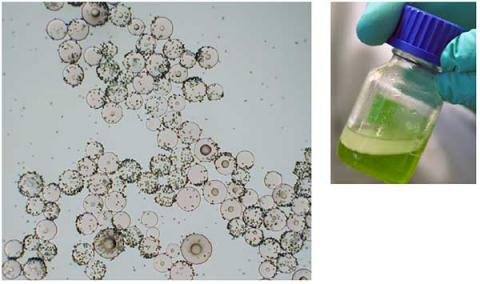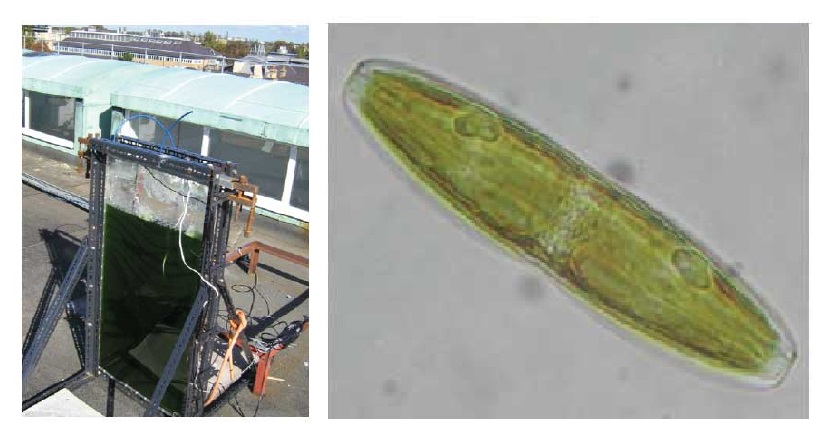Our research addresses several aspects of the metabolism of plants, algae and bacteria, in particular vitamin and cofactor biosynthesis, using a wide range of techniques from biochemistry through molecular biology to genomics, coupled with mathematical modeling approaches. The knowledge gained from these studies is being used to explore the potential for metabolic engineering of high value products in plants and algae, and other biotechnological uses of algae, such as for biodiesel production. In parallel, studies of symbiotic interactions between algae and bacteria are providing insights into algal communities in natural ecosystems, and in dense cultures necessary for industrial cultivation. Projects include:
Microalgal synthetic biology
We are developing molecular tools to allow efficient and rational manipulation of transgene expression, based on our discovery of vitamin-responsive gene expression in Chlamydomonas reinhardtii.
Algal-bacterial symbiosis
We have identified microalgal/bacterial co-cultures, where the algae supply fixed carbon in exchange for vitamins, and are investigating the physiological and molecular basis of this mutualism. We propose the concept of Synthetic Ecology, which aims to establish robust algal co-cultures to facilitate large-scale algal cultivation.
Combining engineering with biology
We collaborate with physical scientists and engineers to model biological processes, such as photosynthetic efficiency and microbial consortia, and to determine which aspects of microalgal biotechnology will be sustainable. Together with colleagues in Biochemistry, we have been developing biophotovoltaic devices that generate electricity directly from photosynthetic organisms.
Gene discovery
We use genome sequence information to identify potential genes encoding biosynthetic enzymes, such as those for biofuel molecules. We verify the function of the genes, and study how they are regulated.
More information
To find out more about the research carried out by the Plant Metabolism Research Group visit the Smith Lab website.
Left: Chlamydomonas cells have vitamin B12 binding proteins in their cell walls, as demonstrated by the fact that they adhere to vitamin B12-agarose beads. Right: Lipid extracted from Chlorella vulgaris. The lipid can be converted into biodiesel.
Left: Algal growth and productivity can be measured in simple outdoor photobioreactors. Right: Phaeodactylum tricornutum, a fast-growing marine diatom. It is a potential host for metabolic engineering for high-value products and biofuels.



